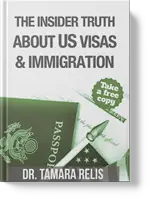
The R-1 visa is a non-immigrant visa that is specifically designed for religious workers of all faiths and backgrounds, This means it allows you to stay and work in the US for a temporary period. Think of it as an opportunity to share your faith and expertise within the American religious landscape. Intrigued? Let’s learn everything you need to know about securing your R-1 visa.
What is it and Who Qualifies?
As a nonimmigrant visa category, it means that this visa is for a temporary stay. But it opens doors to a variety of religious workers. Here’s the exciting part: the R-1 visa isn’t just for ordained clergy! Lay religious workers who are crucial members of their denominations can qualify too.
If you are a minister, priest, or religious educator, this visa could be the perfect option. The category also encompasses other crucial roles within religious organizations, such as cantors, missionaries, and even religious translators.
The key is to have been a devoted member of a bona fide religious organization (one with a recognized non-profit branch in the US) for at least two years before applying.
A Less Common Path, But Full of Opportunity
Statistics show that the R-1 visa is less common than other work visas. but with over 25,000 R-1 visas issued annually, it’s a well-established path (based in USCIS R-1 Visa Statistics). The R-1 visa offers a unique opportunity to share your faith and expertise within the US religious landscape.
Don’t be discouraged by the numbers! The R-1 visa offers a unique chance to share your faith and contribute to the vibrant religious life in the U.S. We have the experience to answer your questions and guide you through the entire process.
Here’s a fun fact: The R visa category has two options. The R-1 visa is for religious workers, while the R-2 visa allows spouses and unmarried children under 21 to accompany the R-1 visa holder
The R-1 Visa Process: Taking the Right Steps
The R-1 visa journey isn’t one you have to walk alone. To secure this visa, a sponsoring religious organization in the US needs to file a petition on your behalf with USCIS (US Citizenship and Immigration Services). This petition details your specific role and responsibilities within the organization. Once USCIS approves the petition, you can apply for the R-1 visa at a US embassy or consulate in your home country.
The validity period of your R-1 visa will depend on the specifics of your position and the petitioning organization. Generally, the initial stay can be up to 30 months, with a maximum stay of five years.
Embark on Your Spiritual Journey in the US
Have you ever felt called to share your faith in the United States? The R-1 visa might be your perfect option. But navigating the application process alone can be challenging.
At RelisLaw, we’ve helped countless passionate religious workers just like you secure their R-1 visas. Our experienced immigration attorneys have the answers you need, from initial eligibility assessments to crafting a strong petition and navigating the application itself.
Let us guide you on this journey of faith. Contact RelisLaw today for a free consultation and turn your mission into reality! +1 800-514-4290
RelisLaw
Latest posts by RelisLaw (see all)
- Protect Your American Dream: Your Legal Shield in the New Immigration Era - January 23, 2025



